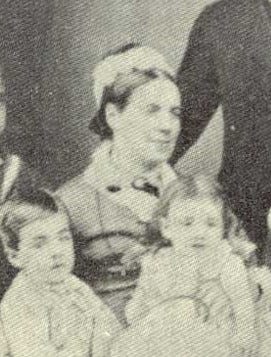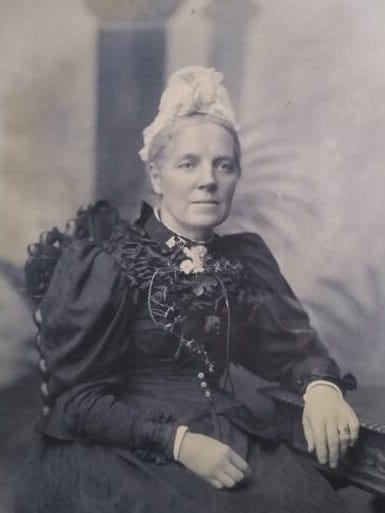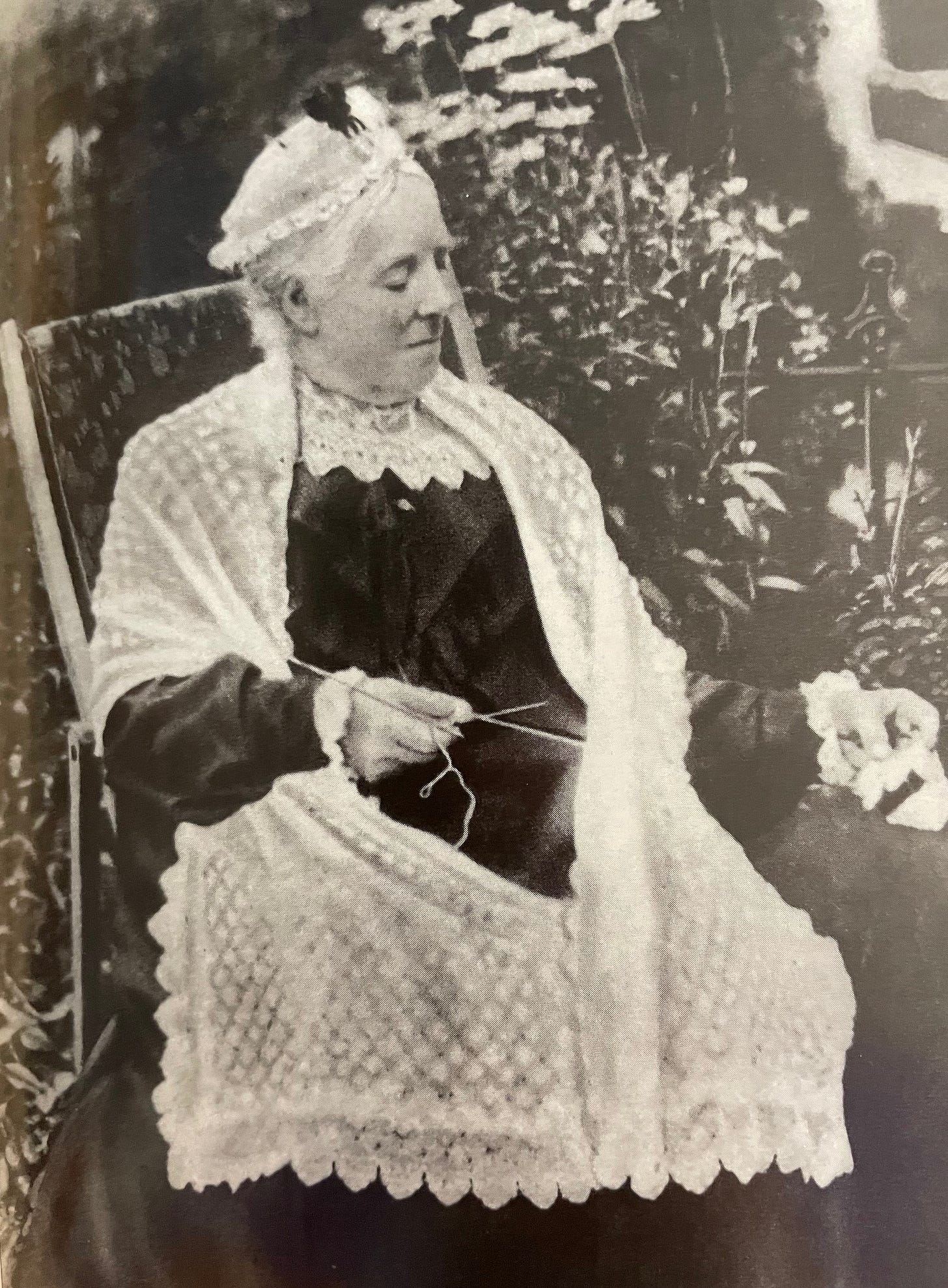A Victorian Christmas in Tierra del Fuego
How British missionaries celebrated with their indigenous neighbors
Tierra del Fuego may be the uttermost ends of the earth—and was so even more in 1875, when it could take a year for letters or packages to reach the area from Europe via ship—but the missionaries who made the area their home still sometimes found ways to celebrate their traditional holidays with their indigenous Yahgan neighbors.
I learned about one particularly special Christmas celebration when I discovered a letter from the wife of missionary Thomas Bridges (the woman on whom my novel’s fictional Mary Ann Bridges is based) describing the event for the benefit of friends and financial supporters back in England.
Aside from providing fun insight into how the missionaries adapted and shared British Victorian Christmas traditions on at least one occasion, this letter was my favorite find from a research jackpot (that I stumbled on when I was stranded on an island at the end of the earth) because not many records remain of the real-life Mary Ann Bridges’ actual words. This is the only letter I’ve found, and I mined it heavily for details of personality, interests, and daily preoccupations when creating the fictional character for my novel.
As a little Christmas gift across the decades, here is Mary Ann Bridges’ letter—full of Christmas cheer and also rich details of mundane life—as it was published in the December 1875 issue of the South American Missionary Magazine.1

Stirling House, Ushuaia, Tierra del Fuego, June 10th, 1875.
I write a few lines, first, to thank you most heartily for your kind and acceptable presents—sent by you in March, 1874, and received by us March, 1875. […] We had never before received so many tokens of sympathy with, and interest in, our work, from so many friends as we did last March, and many times our hearts were filled with thankfulness and our eyes with tears. Truly we thanked our gracious God and took courage. […]
My dear husband had long promised that when the road was finished,2 or when (as was the case) frost, etc., obliged them to discontinue it for the winter, all the people in the place should have a grand treat. Accordingly, on the last day of April, all the native population, to the number of 168, were regaled with beef, bread, and plum pudding. We had previously determined, as we were rich in suitable presents [from the package received in March], that we would have a ‘Christmas tree,’ or, as my sister named it, an ‘April shower.’
On that day, which will long be remembered by many, there was first a service in the church, or schoolroom; then the dinner, which was in an enclosed grass yard; after which a number of men, women, and children, who are usually resident here, but who are not yet reckoned among our civilized natives, were invited to our general room, which was the only suitable place we had for the tree. One or more articles of clothing were given to each person: also to the women, workbags, somewhat scantily furnished; to the men, one of your useful wooden needle-cases, with needles; and to the children, a packet of sweeties and figs, which I sent to England for a year and a half before they arrived! Mr. Bridges then left, and had a number of games with the men and boys, giving as prizes the remnants of food, while we quickly refurnished the tree with gifts for our baptized and civilized natives.
We arranged matters thus, first, because our room could not hold all the guests at once, nor could the tree hold all the presents; and, secondly, because we wished the latter party to receive better presents than the former, and yet desired to prevent jealousy.3 Men, women, and children now received suitable clothing; also the men and elder boys a wooden needle-case and a knitted scarf; the women, workbags and needle-books, etc., liberally furnished; and the children, a large packet of sweets, biscuits, etc., after which all retired to their own homes.
Thus your kind gifts made not a few hearts happy. My dear husband returns you many thanks for the scrap-books—excellent ones he says they are. He is holding them in reserve; for we find it well not to give them too many treats at once, otherwise we should seldom have anything new to bring forth from our treasures; and in this place, where all things are so monotonous, it is good to have a variety as frequently as we can.

I am sorry to tell you that ill health has obliged me to discontinue my children’s classes, and for eighteen months the only regular work I have been able to undertake has been my Mothers’ Meetings or sewing classes. The members of this meeting number sixteen, viz. thirteen women, the wives of our civilized and baptized natives, and three big girls, their daughters. It takes me some hours weekly to cut out and prepare the clothing we make, as, during the three-and-a-half hours we are together, I have quite enough to do to attend to the sewing, for they are none of them very apt scholars.4 However, although very dull, they have all made some progress, and two or three are sufficiently advanced to overlook the others in some measure. Plain sewing, ready placed, many of them do very fairly; but anything more advanced, such as putting on collars or wristbands on shirts, the most forward among them find very difficult. They have no such words as half or quarter in their language, and, with all my showing, I can get none of them constantly to ‘half’ and ‘quarter’ their work. Most of them have little idea of folding a straight hem; indeed, I often say, they are just like our infant school children in England. However, I am by no means discouraged. I get very frequent requests for cotton and pieces of cloth, calico and fustian, for mending purposes, which, of course, I am only too glad to respond to. As a rule, the women are far more ready to patch their clothes than they are to wash them. Indeed, their exceedingly dirty habits are our great trial, and it is only by the exercise of constant care and watchfulness that we avoid becoming contaminated in our intercourse with them. This failing prevents our having a servant. We cannot lodge one, having only two rooms and a passage for our use. We prefer doing the work ourselves, rather than run the risk of having vermin brought into our house.
Although we do so little regular work for the natives, our household duties and the much casual work for the people keep my sister and myself very busy from morning till night. What is our casual work? Preparing food to send or take to the sick; cutting out and placing jackets, petticoats, shirts, etc., the material for which the various natives buy with skins, and, with much assistance from us, make up in their own homes. Sometimes those who cannot yet sew buy material, which they ask ‘cutos ceepa’ or their ‘woman parent,’ to convert into clothes for them. Then, in bad weather, we frequently prepare for and give them from four to sixteen gallons of boiled rice, or flour, or vegetable soup, the quantity depending on the number of persons in the place. In these various employments we find the time pass very quickly, and we are generally thoroughly happy and content. Our mercies we feel to be many and great, and constantly calling forth our devout gratitude to the gracious Bestower. May we show forth His praise, not only with our lips, but in our lives!
My health is much better than it has been for eighteen months, and I trust, with the return of spring, to be able to do much more than heretofore for the good of these poor degraded ones. The prayers of God’s children on our behalf we greatly value; and who can tell what blessings those prayers may call down upon poor benighted Tierra del Fuego? We greatly rejoice in the prospect of an addition to our staff of laborers. With dear Mr. and Mrs. Lawrence we live and work most happily. I shall truly be glad to write from time to time, if you so desire.
M.A. Bridges

I lightly edited the letter for length and relevance to modern-day readers. I imagine the letter was also edited by those who put together the magazine. The original letter was probably in the mission’s archives, which were destroyed in World War II, so there’s no way of knowing to what degree the magazine editors made changes to Mary Ann’s words.
This refers to a road the missionaries and their (paid) indigenous helpers were building up from the beach through the center of the mission settlement. On either side of the road were homes and fenced-in gardens belonging to the missionaries and the Yahgan converts. The road facilitated the loading and unloading of ships in the bay that arrived to resupply the mission.
I can’t help but wonder how this division of gifts was perceived by the Yahgan. In their culture, people were expected to share food equally with everyone around. Their traditional stories show that not sharing food or other resources with everyone else was seen as terribly selfish.
Unfortunately, this section is a little hard to read. British people of the time tended to be Eurocentric and racist, as evidenced by the way people from other ethnicities were displayed in human zoos and the Yahgan were considered to be the missing link between animals and humans. Against this backdrop, the missionaries in Ushuaia were remarkable for considering the Yahgan’s souls worth saving…but most of them still considered themselves superior and wrote about the Yahgan in a baldly patronizing tone.




I love when voices from the past come back to life! Thank you for sharing this!
Since I sew I found it hilarious and ludicrous that the aspiring seamstresses were expected to learn to sew on a collar and get a hem straight! And how she spent so much of her ‘casual’ (what does THAT mean😅) time making patterns. The Yaghan should have been teaching her how to skin guanaco!